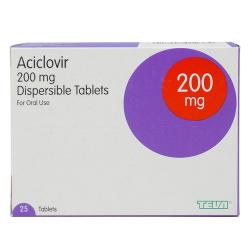- Private & confidential service
- Genuine medication
- All-inclusive service - No hidden fees
- Next day delivery
- Herpes Virus
Herpes Virus: start your consultation
- 1. Answer the online medical questions
- This helps our doctors to decide which treatment is safe for you.
- 2. Select your treatment
- You will see a list of recommended treatments. You can select the one you prefer.
- 3. Checkout and delivery
- Once you’ve completed the checkout, our doctors will review your answers. If all is safe, you will receive your treatment tomorrow.

- Reduces symptoms
- Quickens recovery time
- Genital herpes, cold sores and shingles

- Reduces symptoms in 2 days
- Lessen outbreak duration
- For genital herpes, cold sores and shingles

- Reduces symptoms in 2 days
- Lessen the length of outbreak
- Genital herpes, cold sores and shingles

- Improves recovery time
- Reduces length of outbreak
- Treats genital herpes, cold sores and shingles

- Identify and treat skin conditions
- Convenient from your home
- Results in 1 working day
Herpes Virus
The herpes virus consists of genital herpes, shingles and cold sores. It is a long-term condition that often remains dormant but can flair up from time-to-time. Depending on the severity of the outbreak, there are convenient antiviral treatments available to control symptoms and speed up recovery time. It is possible to buy treatments in advance as preparation and we offer next day delivery to start your course quickly if an outbreak has occurred. We offer a free online consultation with one of our doctors, alternatively, you can read more about the herpes virus below.
Topics
What is the herpes virus?
Herpes is caused by HSV (herpes simplex virus). It can affect both men and women and is broken down into two forms - HSV-1 (oral herpes) and HSV-2 (genital herpes). The herpes virus is mostly associated with genital herpes, however, it can cause cold sores and shingles as well. These forms of the virus are also transferable across the body. For example, if you perform oral sex whilst having cold sores, the likelihood of your partner contracting genital herpes is higher.
Being a viral infection, herpes is not curable. It will remain in your system for life, however, many people find it will lay dormant for the vast majority of the time. In addition, outbreaks may only occur if certain triggers activate the virus. This means once you discovered this then the probability of experiencing symptoms is even lower.
What is the herpes virus?
Being a chronic infection, and common at that, there is medication that helps relieve symptoms and speed up the recovery time. You can also buy herpes medications for spontaneous outbreaks as well as a long-term treatment option.
What should I know about genital herpes?
Genital herpes is a sexually transmitted infection (STI) caused by the herpes simplex virus. It is highly infectious and can cause a number of uncomfortable and unsightly symptoms - such as water blisters, red sores and ulcers - that appear on and around the genitals, thighs, buttocks and anus.
Genital herpes is usually passed on during unprotected sexual intercourse. However, the infection is also spread through touch, so it's possible to catch it from simply coming into contact with an area with active symptoms, which aren't always visible.
The virus affects everyone differently; some people experience genital herpes symptoms days after they contract the virus, and others may not see the effects for months, or even years. While the body's immune system can slowly fight the symptoms, they will usually return, sometimes within a few weeks or months.
Genital herpes has also been linked to the contraction of HIV, especially if you have experienced blisters. In rare cases, the HSV-2 virus has been passed on through birth from a mother who is infected to her baby. It is, therefore, essential that you get treatment as soon as possible for this infection.
You can find out more about genital herpes including the symptoms, causes and treatment options on our dedicated genital herpes information page.
What are some common herpes myths?
The herpes virus is not well known despite it being so common. This leads to a number of myths circulating, we explore a few of them below.
Myth - Herpes symptoms are obvious
The symptoms of herpes are well-reported, however, this doesn't mean you will definitely know you have the virus. Breakouts may show up as blisters but for the majority of carriers, there are no obvious symptoms. Many people have the herpes virus and simply don't know about it. This could be due to the way the virus can lay dormant, even for a number of years.
What are some common herpes myths?
The NHS says at least 8 out of 10 people with the herpes virus are unaware. This myth is further debunked by Marian Nicholson, director of the Herpes Viruses Association who states that "If 5 people catch it, one has symptoms bad enough to go and get diagnosed, one has no symptoms at all, and the others have really mild symptoms, they don't get diagnosed but the person can be 'educated' to recognise them: a little cut, an itchy/sore place, a tiny spot, an 'infected hair follicle'."
Myth - Blisters are the only symptoms
The painful blisters we associate with herpes are not the only symptoms. You can also expeirence the following:
- Nerve pain
- Tingling
- Itching
- Aching muscles
- Fatigue
- Flu-like symptoms
- Pain during urination
A lack of blistering is likely the reason why so many people have herpes but don't realise. The frustrating thing is, there is no clearcut examination for herpes at the doctors or STI clinic; you can only be diagnosed if vsible symptoms form.
Myth - You can only pass it on if you have symptoms
This is false. Herpes is not transmitted through saliva or blood; it's spread by skin to skin contact. This means carriers can shed the virus through their skin even when there are no blisters or sores present.
In addition, there have been no reported cases where herpes has been transmitted to an individual from a toilet seat. It is also a myth that the virus can be caught from towels, baths, cutlery, etc.
Some medications can decrease virus shedding. New England Journal of Medicine study found that certain medications decreased genital herpes transmission to uninfected partners by 48%. However, it's not 100% proven and herpes can spread at any time.
Myth - You are more likely to experience other infections
This is extremely unlikely. In the vast majority of cases, it is highly unlikely that individuals dealing with herpes will experience other infections as a result. However, in some very rare cases, certain people with herpes can develop cellulitis.
Cellulitis is a bacterial infection that is caused by bacteria entering the sores produced at the hands of genital herpes. This infection causes a red rash as well as feelings of tenderness and possibly fever. Cellulitis can be treated with a course of antibiotics.
Myth - You can only get herpes through penetrative sex
If you have herpes on your genitals and you wear a condom, this significantly reduces the chances of getting herpes. However, herpes can appear on the mouth and around the genitalia so you don't need to have sex to get it.
Myth - Herpes has an effect on your fertility
Whilst herpes can be transferre dto children through cold sores and sometimes pregnanc , the virus has aboslutely no effect on fertility.
Fact - There are different types
There's the herpes simplex virus type 1 (HSV-1) and herpes simplex virus type 2 (HSV-2) that are related but tend to affect different areas.
- Herpes simplex virus type 1 (HSV-1) - This is the type that produces a cold sore on the lips.
- Herpes simplex virus type 2 (HSV-2) - This is the type that produces genital herpes.
- Symptoms of the first outbreak usually last for two to three weeks.
- For women, first outbreaks can be particularly severe.
- Outbreaks that occur later tend to be mild and don't last as long.
- It's possible for women to experience internal outbreaks on or around the cervix.
- Men tend to be asymptomatic carriers who don't experience symptoms but pass it on for many years.
- Individuals who have HSV-1 when they contract HSV-2 aren't as likely to experience symptoms at first.
- Herpes medication lowers the viral load, so it can keep an outbreak at bay.
The cold sore creating herpes virus (herpes zoster) can also cause genital herpes through oral sex. That's why condoms and dental dams are important for casual sex and oral with a partner who is known to have herpes.
Fact - Herpes is common
In 2013, 32,279 people in England went to a sexual health clinic with their first attack of herpes. This figure doesn't include those already confirmed with the condition, those who didn't seek treatment and those who don't realise they have herpes. Globally there are estimated to be 536 million people infected with herpes.
Fact - Herpes makes you more susceptible to HIV
Those who have contracted herpes are much more likely to get HIV than those who do not have herpes. The reason for this is that during a genital herpes outbreak CD4 cells (cells that battle against herpes) is located at the base of herpes legions and these particular cells are the cells most at risk of being attacked by HIV. Therefore, herpes lesions provide easier access for the transmission of HIV.
Fact - Outbreaks vary in terms of severity and frequency
Generally, herpes are recognised as having clusters of blisters filled with fluid that then eventually become dry and flake off. The number of outbreaks individuals with herpes have does differ from case to case. Some people have a lot of outbreaks, some only a few and some can experience no outbreaks at all.
Fact - Herpes is for life
The herpes virus is not curable, but this doesn't mean you will have regular outbreaks. Approximately 50% of individuals won't have another outbreak after their initial one for years. You might not get another outbreak at all. Some individuals get outbreaks every few months. The number of outbreaks you experience reduces over time as well.
Listed below are some additional facts concerning herpes outbreaks:
Antiviral medicine can be taken for the first outbreak. Medication prevents the virus from multiplying. For subsequent outbreaks, you are likely to be advised on self-treatment, such as ice packs and washing with salt water. For severe outbreaks, you may be prescribed medication again. The NHS suggests that if you have more than six outbreaks a year, you may need suppressive medication to control the virus.
What should I know about shingles?
Shingles is caused by the herpes zoster strain of the herpes virus. This virus is the main cause of chickenpox, and people who caught chickenpox when they were younger can develop later in life as well. Due to the infectious nature of chicken pox and shingles, the NHS estimates that around 1 in 4 people in the UK will experience herpes zoster at least once in their lives.
The symptoms of shingles can be uncomfortable, as you may remember if you've had chicken pox. Although you can fully recover from chickenpox, the herpes zoster virus still remains dormant in the nerve cells and can become active later in life resulting in shingles.
It is not yet fully understood why some people develop shingles and others don't. If you do develop shingles, you could experience around 2-3 outbreaks during your lifetime.
Shingles is not contagious. However, if you did not have chickenpox as a child, you can potentially contract chickenpox by coming into contact with a person displaying active shingles symptoms. It is not responsible for genital herpes or cold sores with causes - other than chicken pox - including old age, stress, HIV and AIDS and certain transplant surgeries.
If you are displaying symptoms of shingles or would simply like more knowledge of herpes zoster, you can visit our information page.
How do shingles look like?
What should I know about cold sores?
Cold sores are commonly caused by 2 different strains of the herpes simplex virus known as HSV-1 and HSV-2. An outbreak of cold sores is usually signified by fluid filled blisters appearing around the mouth. Cold sores are highly contagious and can spread from one person to another through direct contact or by sharing a toothbrush or razor.
Unlike shingles, cold sores can result in genital herpes and vice versa if you engage in oral sex. It's important to mention that visible symptoms don't need to be present to contract the virus.
It's one of the most widely occurring forms of herpes and people tend to contract it when they are young, but symptoms only develop during adolescence. You can also contract the virus as an adult, with symptoms appearing a couple of weeks after you've been infected. These symptoms may reoccur throughout a person's life, but future outbreaks are usually less painful than the primary infection.
Whilst being extremely common, it's important to gather information regarding the condition to successfully treat the blisters and avoid transferring it to others. Check out our cold sores page for more information.
How do cold sores look like?
What treatments are available to treat herpes?
Herpes can't be cured, but it is possible to reduce the discomfort and duration of an infection, by using anti-viral treatments such as Famvir, Valtrex and Aciclovir. Valtrex and Famvir are fast acting treatments that can provide almost immediate relief from symptoms and can reduce the length of time the virus is active. If you are experiencing symptoms for the first time or if you were unable to take Valtrex and Famvir during the first 72 hours of an outbreak, you may be recommended to use Aciclovir to treat the infection.
If you are experiencing an outbreak, or want to prepare for a future outbreak, you can order herpes medication online from HealthExpress. All you have to do to start an online consultation is to click on the button below. Each consultation will be reviewed by one of our doctors, so that they can determine which treatments are suitable for you. You will then be invited to make your choice and place an order with us. We offer free overnight delivery on all herpes medications, so you can start treatment as soon as possible.
What areas of the body can herpes affect?
Herpes commonly cause infections around the mouth, genitals and localised anal area, however, only skin to skin contact can transfer the infection so it is possible to contract the virus across various places on the body.
Herpes infection of the lips
Whilst you may think cold sores are the result of kissing as adults or performing oral sex late on in life, most people get herpes simplex type 1 as children either through kissing or coming in contact with a relative who has cold sores.
Herpes infection in the eyes
Herpes simplex remains dormant within the nerve ganglion in the facial area and when it becomes active, it travels along the nerve branch towards the lip where it normally causes what is known as a cold sore, but sometimes, the virus travels down the nerve branch to the eye where it can cause in infection.
HSV causes the cornea to become infected - a condition which is known as keratitis - but if it starts affecting deeper layers of the cornea it can cause scarring or other more serious sight problems involving the iris or retina. In some cases inflammation of the conjunctiva or eyelids may occur in conjunction with the cornea.
Herpes infection of the nipples
Although rare, herpes simplex can also affect the breasts. This is normally caused by herpes simplex. It's dangerous because it can spread from a mother to her child when she is breastfeeding. It's signified by fluid filled blisters covering the central area of the nipple and sometimes moves to the nipple, which then turns into ulcer-like sores, however sometimes you may not notice the blisters until the ulcers have started to develop.
Herpes infection of the fingers
A herpes infection of the fingers is usually known as herpes whitlow. A herpes infection of the fingers normally affects one or more fingers and is caused by HSV type 1 but can also be caused by HSV type 2. It normally spreads from one person to another through contact with infected bodily fluids, which is why in adults it mostly tends to be caused by HSV type 2.
Herpes infection of the buttocks
A herpes infection of the buttocks is more than likely due to genital herpes. Sometimes an outbreak on the buttocks may occur without any sign of an infection in the associated genital areas. It may also be a sign that an outbreak is about to start.
medical form
medication
prescription
from pharmacy







